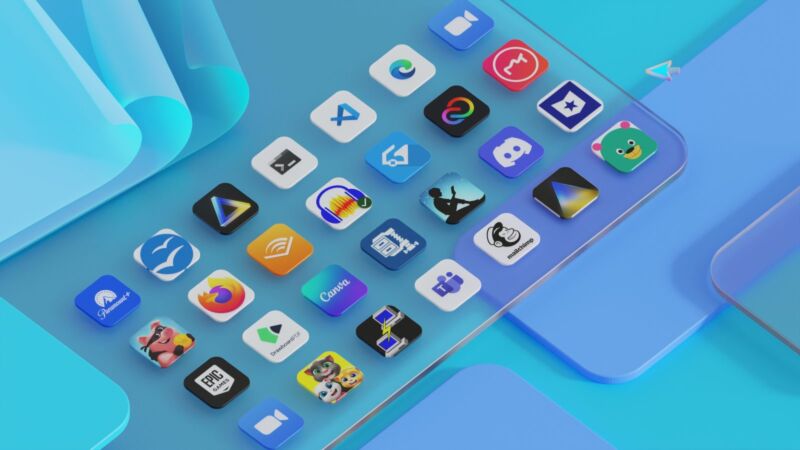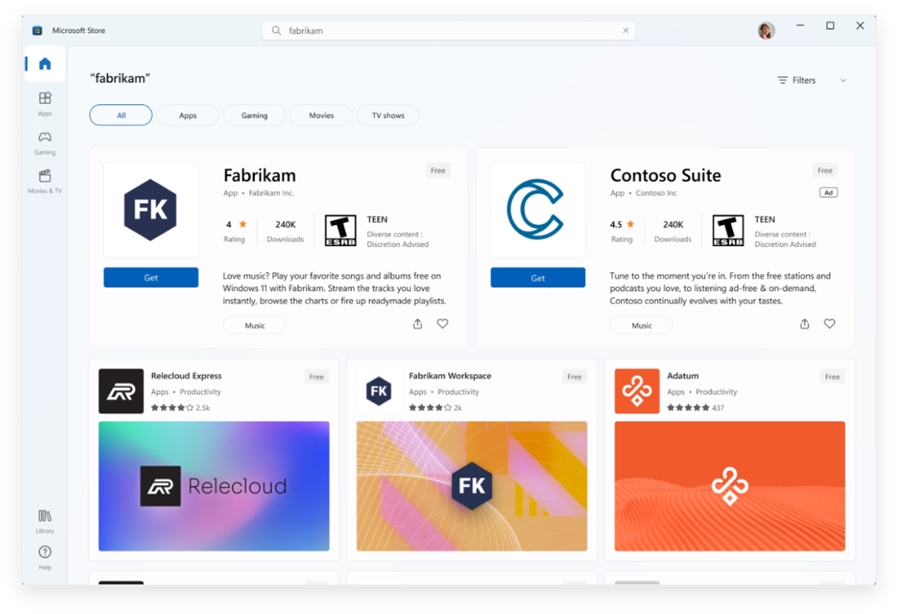
If your main problem with the Microsoft Store is that you get too many relevant results when you search for apps, good news: Microsoft is officially launching Microsoft Store Ads, a way for developers to pay to get their apps in front of your eyes when you go to the store to look for something else.
Microsoft’s landing page for the feature says the apps will appear during searches and in the Apps and Gaming tabs within the app. Developers will be able to track whether and where users see the ads and whether they’re downloading and opening the apps once they see the ads.
Microsoft also provided an update on the health of the Microsoft Store, pointing to 2022 as “a record year,” with more than 900 million unique users worldwide and “a 122% year-over-year increase in developer submissions of new apps and games.” Microsoft has steadily loosened its restrictions on Store apps in the last year or two, allowing in traditional Win32 apps and also leaning on Amazon’s Android app store and the Windows Subsystem for Android to expand its selection.
The company launched a “pilot program” of the Microsoft Store Ads back in September of 2022, and the look of the ads doesn’t appear to have changed much since then. Ads will be served to Microsoft Store users on Windows 10 and Windows 11 and are only available to developers who have already published their apps to the store.

These kinds of ads are usually described in benign terms—that they’re merely a way for the developers on the Microsoft Store to boost their work and find more users. The reality is that similar ads on Apple’s platforms, at least in my experience, tend to be either irrelevant (ads for Twitter or Truth Social on a search for Mastodon clients), annoying (ads for shovelware free-to-play games), actively malicious (the brief period where gambling ads took over the store), or some combination of all three.
The new addition may or may not turn up relevant search results for users, but it does add more advertisements to a platform that already has plenty of them. A fresh Windows 11 install from a USB stick automatically pulls down a range of third-party apps from the Microsoft Store the first time you connect to the Internet, and Windows includes plenty of Microsoft house ads for Edge, Bing, Microsoft Start, Microsoft 365, OneDrive, and other products and features.
https://arstechnica.com/?p=1914756

